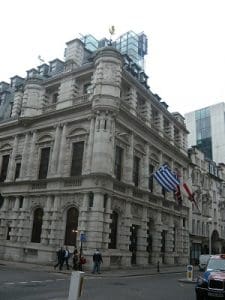 Accidental release of cryogenic liquids such as LNG (liquefied natural gas) poses a significant risk to personnel and assets on oil and gas installations. In addressing these risks, Lloyd’s Register Energy has developed a guidance note that provides a consistent methodology to establish cryogenic exposure.
Accidental release of cryogenic liquids such as LNG (liquefied natural gas) poses a significant risk to personnel and assets on oil and gas installations. In addressing these risks, Lloyd’s Register Energy has developed a guidance note that provides a consistent methodology to establish cryogenic exposure.
Lloyd’s Register Energy’s newly launched guidance note provides a methodology to establish risk-based cryogenic exposure based on a probabilistic approach. It is applicable to any unit where hydrocarbon and refrigerant cryogenic hazards are relevant, but offers special guidelines on how to handle leak scenarios specific to LNG plants.
Joar Dalheim, Vice President Technology in Lloyd’s Register Energy’s consulting team says “As natural gas is becoming increasingly important to satisfy global energy demands, so is the need for safer and more efficient facilities. Given the large quantities of cryogenic materials present on a floating LNG facility, there is a serious risk of extensive damage in the event of cryogenic failure of critical components. As the estimation methods currently available are granular, we see a need for a more inclusive approach. This is what we are delivering with our guidance note.”
The guidance note describes two different methods for cryogenic risk quantification: the initial cryogenic risk analysis (ICRA) and the advanced cryogenic risk analysis (ACRA).
The ICRA method relies on 2D models to estimate cryogenic liquid and vapour hazard zones. While this is the most common approach, it offers certain limitations as it cannot incorporate platform specifics, such as equipment, walls, deck and other structures, and thus necessitates strong conservative assumptions. The ICRA is therefore mainly suitable for cryogenic risk quantification at the early design stages.
The more advanced ACRA risk method is based on 3D computational fluid dynamics (CFD) models and has been developed to incorporate detailed facility specifics (e.g. confinement and congestion) in the risk assessments.
“Integrating 3D analytical tools in the cryogenic risk analysis removes many of the uncertainties and limitations involved when relying on 2D analyses alone. This increases the accuracy of the hazard predictions and eliminates the need for arbitrary assumptions” ascertains Dalheim.
Lloyd’s Register Energy’s services associated with cryogenic spill analysis adapt to the client needs and select the consequence tools most appropriate for the different project phases.
The guidance on cryogenic spills is the latest offering in Lloyd’s Register Energy’s suite of guidance notes on risk-based methodologies. These risk-based analysis guidance notes provide risk-based methodologies to establish explosion, collisions, fire and cryogenic loads based on a probabilistic approach, rather than a worst case scenario with the objective of minimising risk, improving safety, quality and performance.
All the guidance notes can be downloaded for free at www.lr.org/guidance-notes
| About Lloyd’s Register EnergyLloyd’s Register Energy applies its expert knowledge and independence to help clients and regulators design, construct and operate their capital intensive assets and businesses to their highest levels of safety and performance. Its world class expertise allows it to resolve and share solutions to the most complex situations, providing the confidence demanded by engineering principles, government regulations and industry codes and standards. And, as part of Lloyd’s Register, it draws on a long heritage of fresh, innovative thinking in response to new technologies and challenges. The one consistent element is its commitment to independence, integrity and always doing the right thing.About LR Lloyd’s Register (LR) is a global engineering, technical and business services organisation wholly owned by the Lloyd’s Register Foundation, a UK charity dedicated to research and education in science and engineering. Founded in 1760 as a marine classification society, LR now operates across many industry sectors, with over 9, 000 employees in 78 countries.LR has a long-standing reputation for integrity, impartiality and technical excellence. Our compliance, risk and technical consultancy services give clients confidence that their assets and businesses are safe, sustainable and dependable. Through our global technology centres and research network, LR is at the forefront of understanding the application of new science and technology to future-proof our clients’ businesses. |
|
| www.lr.orgLloyd’s Register and variants of it are trading names of Lloyd’s Register Group Limited, its subsidiaries and affiliates. |





